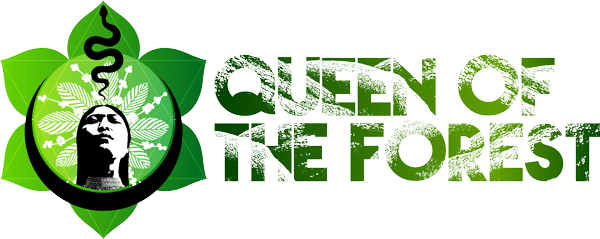The Plants Our Teachers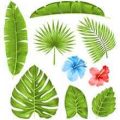 [/mpc_textblock][mpc_textblock content_width=”100″]
[/mpc_textblock][mpc_textblock content_width=”100″]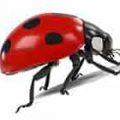 [/mpc_textblock][/vc_column][vc_column width=”1/3″][vc_column_text]Magnificent Creatures[/vc_column_text][mpc_cubebox][mpc_cubebox_side title=”Front” tab_id=”1487989487828-4″][mpc_image image=”10155″ image_opacity=”100″ image_inner_border_gap=”0″ effect=”none” image_hover_opacity=”100″][/mpc_cubebox_side][mpc_cubebox_side title=”Side” tab_id=”1487989488012-0″][mpc_image image=”10217″ image_opacity=”100″ image_inner_border_gap=”0″ effect=”none” image_hover_opacity=”100″][/mpc_cubebox_side][/mpc_cubebox][mpc_textblock content_width=”100″]The region is home to about 2.5 million species of insects, tens of thousands of plants and about 2,000 birds and mammals. To date, at least
[/mpc_textblock][/vc_column][vc_column width=”1/3″][vc_column_text]Magnificent Creatures[/vc_column_text][mpc_cubebox][mpc_cubebox_side title=”Front” tab_id=”1487989487828-4″][mpc_image image=”10155″ image_opacity=”100″ image_inner_border_gap=”0″ effect=”none” image_hover_opacity=”100″][/mpc_cubebox_side][mpc_cubebox_side title=”Side” tab_id=”1487989488012-0″][mpc_image image=”10217″ image_opacity=”100″ image_inner_border_gap=”0″ effect=”none” image_hover_opacity=”100″][/mpc_cubebox_side][/mpc_cubebox][mpc_textblock content_width=”100″]The region is home to about 2.5 million species of insects, tens of thousands of plants and about 2,000 birds and mammals. To date, at least
40 000 plant species, 3 000 fish, 1 294 birds, 427 mammals, 428 amphibians and 378 reptiles have been classified scientifically in the Region.[/mpc_textblock][/vc_column][vc_column width=”1/3″ background_position=”right bottom” css=”.vc_custom_1487993518975{background-position: center !important;background-repeat: no-repeat !important;background-size: cover !important;}”][vc_empty_space][vc_empty_space][mpc_textblock content_width=”100″]The indigenous peoples are the first known inhabitants of the Amazon. They hold the ancestral knowledge of the forest and a whole technology of interactivity with the environment without destroying it.
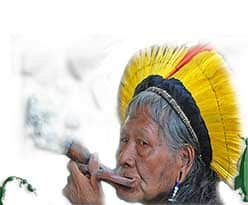 [/mpc_textblock][vc_empty_space][vc_empty_space][vc_empty_space][vc_empty_space][vc_empty_space][vc_empty_space][mpc_button preset=”mpc_preset_30″ block=”true” url=”url:%23|title:Link|” font_preset=”mpc_preset_20″ font_color=”#ffffff” font_size=”16″ font_transform=”uppercase” font_align=”center” title=”Get to Know the Forest!” background_color=”#88d282″ border_css=”border-width:4px;border-color:#88d282;border-style:solid;border-radius:0px;” padding_divider=”true” padding_css=”padding-top:18px;padding-right:48px;padding-bottom:18px;padding-left:48px;” margin_divider=”true” margin_css=”margin-top:40px;margin-right:28px;” hover_font_color=”#88d282″ hover_background_color=”#ffffff” hover_border_css=”border-radius:100px;”][mpc_button preset=”mpc_preset_21″ block=”true” url=”url:%23|title:Link|” font_preset=”mpc_preset_20″ font_color=”#f8bf4d” font_size=”16″ font_transform=”uppercase” title=”Visit our Blog” icon=”fa fa-bug” icon_color=”#02ce83″ icon_size=”20″ icon_effect=”push_out-top” border_css=”border-width:2px;border-color:#f8bf4d;border-style:solid;border-radius:0px;” padding_divider=”true” padding_css=”padding-top:12px;padding-right:30px;padding-bottom:12px;padding-left:30px;” margin_divider=”true” margin_css=”margin-top:11px;” hover_font_color=”#ffffff” hover_background_color=”#f8bf4d” hover_background_effect=”slide-top”][/vc_column][/vc_row][/vc_section]
[/mpc_textblock][vc_empty_space][vc_empty_space][vc_empty_space][vc_empty_space][vc_empty_space][vc_empty_space][mpc_button preset=”mpc_preset_30″ block=”true” url=”url:%23|title:Link|” font_preset=”mpc_preset_20″ font_color=”#ffffff” font_size=”16″ font_transform=”uppercase” font_align=”center” title=”Get to Know the Forest!” background_color=”#88d282″ border_css=”border-width:4px;border-color:#88d282;border-style:solid;border-radius:0px;” padding_divider=”true” padding_css=”padding-top:18px;padding-right:48px;padding-bottom:18px;padding-left:48px;” margin_divider=”true” margin_css=”margin-top:40px;margin-right:28px;” hover_font_color=”#88d282″ hover_background_color=”#ffffff” hover_border_css=”border-radius:100px;”][mpc_button preset=”mpc_preset_21″ block=”true” url=”url:%23|title:Link|” font_preset=”mpc_preset_20″ font_color=”#f8bf4d” font_size=”16″ font_transform=”uppercase” title=”Visit our Blog” icon=”fa fa-bug” icon_color=”#02ce83″ icon_size=”20″ icon_effect=”push_out-top” border_css=”border-width:2px;border-color:#f8bf4d;border-style:solid;border-radius:0px;” padding_divider=”true” padding_css=”padding-top:12px;padding-right:30px;padding-bottom:12px;padding-left:30px;” margin_divider=”true” margin_css=”margin-top:11px;” hover_font_color=”#ffffff” hover_background_color=”#f8bf4d” hover_background_effect=”slide-top”][/vc_column][/vc_row][/vc_section]
